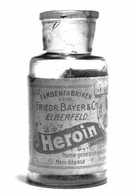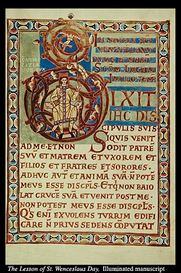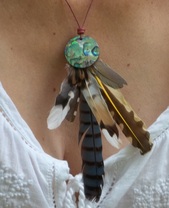cure [kyoor], noun: successful remedial treatment; restoration to health.
remission [ri-mish-uhn], noun: abatement or diminution, as of… intensity, etc.
Dear Traveler,
The medical community does not use the word “cure” in relation to cancer, but prefers the term “remission”. Why is this?
Dr. Ed Zimney, M.D. tell us: “… even when a person is in remission, there may be microscopic collections of cancer cells that cannot be identified by current techniques. This means that even if a person is in remission, they may, at some future time, experience a recurrence of their cancer.” (Bold letters mine).
Hm. By this logic, it would seem we should all consider ourselves “in remission” from chickenpox (which may later re-emerge as shingles), TB (which bacteria nearly all of us carry in a dormant state), and for that matter, the common cold. After all, if these theoretical "microscopic collections" of cancer cells are so microscopic, our bodies have a very good chance of cleaning them up (and the more we can do to help facilitate this, the better).
The word remission conveys the notion of a temporary lull, and hints at inevitable recurrence. Here lies great danger; the danger of inciting chronic fear, dread, hopelessness – and so, at the very worst, self-fulfilling prophesy.
As unpleasant as it is to realize, there is a “cancer economy”, and given that fact, it follows that there are certain parties with a vested interest in keeping tabs on the “cancer population”; keeping them “in the system” if you will. But I won’t digress into that discussion here, and I'm not suggesting that those with a history of cancer shouldn't maintain vigilance in monitoring their health. I only wish to point out that it is not the patients who decide the terminology by which they are described and identified – sometimes for life. Labeled (even by well-meaning physicians) as “cancer patients in remission”, we are never free of the taint of illness even if we have overcome it. How can this be good for our health?
Though the medical community may (for various reasons) find it too risky, there is no one to stop us – patients, families, friends, and loved ones – from exercising the right to use positive, life-affirming words to describe the successful recovery from one of the 21st century’s most complicated and insidious illnesses.
Healed. Recovered. Healthy. Whole. Well. Cured.
Let’s take back the power. Who knows… it just might lead to fewer recurrences.
With love ~ rosemary
remission [ri-mish-uhn], noun: abatement or diminution, as of… intensity, etc.
Dear Traveler,
The medical community does not use the word “cure” in relation to cancer, but prefers the term “remission”. Why is this?
Dr. Ed Zimney, M.D. tell us: “… even when a person is in remission, there may be microscopic collections of cancer cells that cannot be identified by current techniques. This means that even if a person is in remission, they may, at some future time, experience a recurrence of their cancer.” (Bold letters mine).
Hm. By this logic, it would seem we should all consider ourselves “in remission” from chickenpox (which may later re-emerge as shingles), TB (which bacteria nearly all of us carry in a dormant state), and for that matter, the common cold. After all, if these theoretical "microscopic collections" of cancer cells are so microscopic, our bodies have a very good chance of cleaning them up (and the more we can do to help facilitate this, the better).
The word remission conveys the notion of a temporary lull, and hints at inevitable recurrence. Here lies great danger; the danger of inciting chronic fear, dread, hopelessness – and so, at the very worst, self-fulfilling prophesy.
As unpleasant as it is to realize, there is a “cancer economy”, and given that fact, it follows that there are certain parties with a vested interest in keeping tabs on the “cancer population”; keeping them “in the system” if you will. But I won’t digress into that discussion here, and I'm not suggesting that those with a history of cancer shouldn't maintain vigilance in monitoring their health. I only wish to point out that it is not the patients who decide the terminology by which they are described and identified – sometimes for life. Labeled (even by well-meaning physicians) as “cancer patients in remission”, we are never free of the taint of illness even if we have overcome it. How can this be good for our health?
Though the medical community may (for various reasons) find it too risky, there is no one to stop us – patients, families, friends, and loved ones – from exercising the right to use positive, life-affirming words to describe the successful recovery from one of the 21st century’s most complicated and insidious illnesses.
Healed. Recovered. Healthy. Whole. Well. Cured.
Let’s take back the power. Who knows… it just might lead to fewer recurrences.
With love ~ rosemary



 RSS Feed
RSS Feed